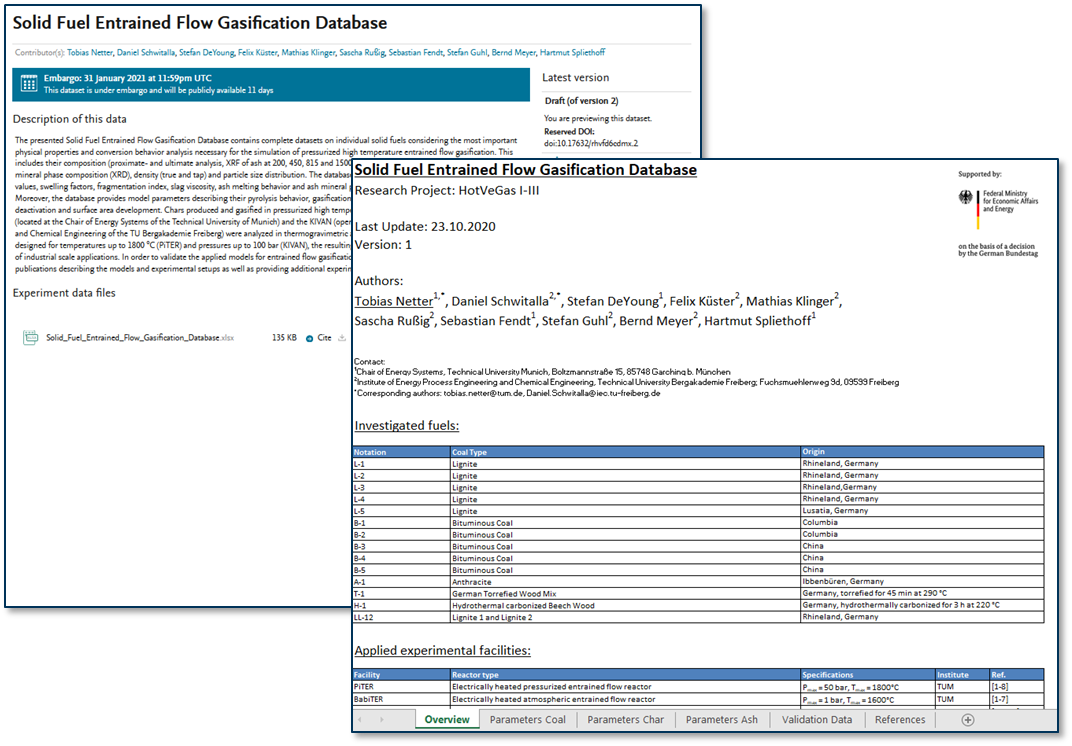Solid Fuel Entrained Flow Gasification Database

Based on many years of successful operation of our entrained flow gasifiers PiTER (Pressurized High Temperature Entrained Flow Reactor), BabiTER (Baby High Temperature Entrained Flow Reactor) and Booster (Biomass Pilot-Scale Entrained Flow Gasifier), as well as the projects VERENA and HotVeGas I-III, the Chair of Energy Systems has extensive knowledge about the gasification behaviour of different solid fuels. This competence is now bundled for 14 different fuels in a fuel database (status: May 2021) which will be further supplemented in the future.
The so-called "Solid Fuel Entrained Flow Gasification Database" contains information about the chemical composition (proximate and elemental analysis, XRF of the ash at 200 °C, 450 °C, 815 °C, 1500 °C), physical properties (crystallinity, density and particle size) and behaviour of the fuels (calorific value, swelling, fragmentation, ash viscosity, ash melting behaviour) as well as parameters for the kinetic modelling of the volatile release and the conversion behaviour of their chars. This includes data for determining the pressure- and temperature- dependent volatile release, the temperature- and partial pressure-dependent char reactivity with CO2, steam and O2 and their product inhibition with H2 and CO. In addition, parameters for modeling of the surface area development and reactivity behavior as a function of the residence time and gasifier temperature are published. As the data is intended to be used primarily for the parameterization and simulation of entrained flow processes by means of computational fluid dynamics, the database refers to various publications that provide further measured data for validation purposes.
The "Solid Fuel Entrained Flow Gasification Database" can be downloaded at Mendeley Data:
Information about the applied model equations, description of the equipment and analysis methods, as well as the discussion of the experimental determination of the model parameters can be found in the following publication:
A free version of the publication can be downloaded until 20 May 2021 using the link below:

